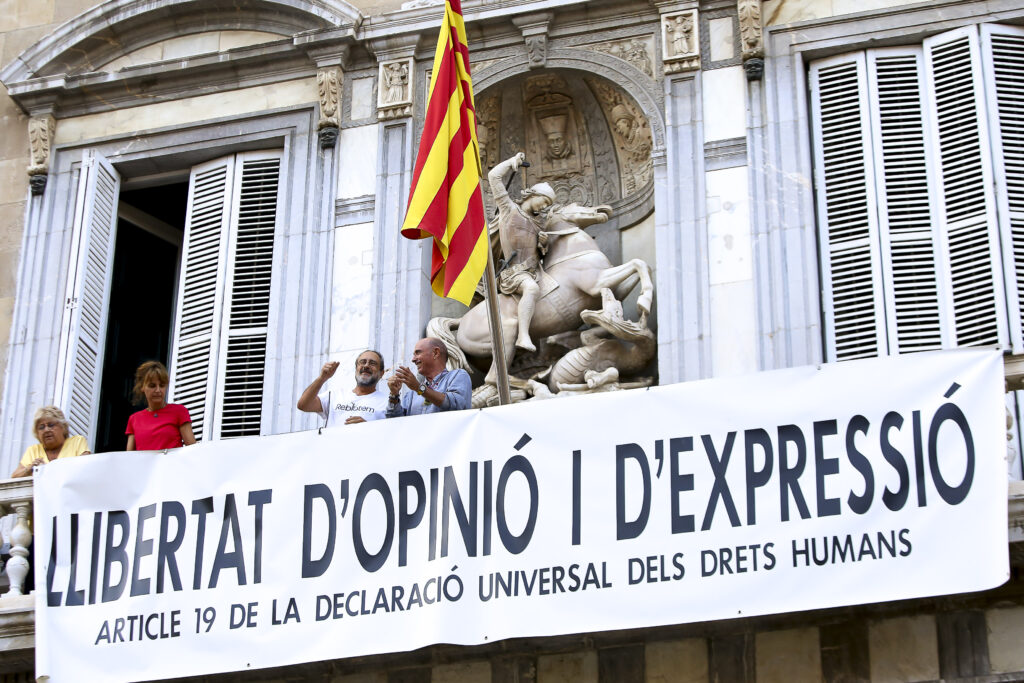02.06.2020 - 09:15
|
Actualització: 02.06.2020 - 11:15
Spain’s Supreme Court has issued a ruling that prohibits the display of “unofficial” flags on public buildings and in public spaces. Specifically, the ruling establishes that “the use, even occasional, of unofficial flags on the outside of buildings and public spaces is not compatible with the constitutional framework and legal in force, and in particular, with the duty of objectivity and neutrality of the public administrations.”
According to the Supreme Court, this “incompatibility” with the legal framework is maintained even if these “unofficial” flags do not replace, but are placed alongside, “the flag of Spain and the others legally or statutorily instituted.” The move will have repercussions for various administrative buildings in Catalonia, many of which display Catalan pro-independence flags.
Some mayors have already made public their disconformity:
#28J #LGTBI #Celrà cap tribunal pot prohibir una bandera de llibertat pic.twitter.com/ODP6XcKS6d
— Dani Cornellà #Independència #EcoSocialisme (@danicornella) June 1, 2020
The Catalan government headquarters building in the center of Barcelona has for months displayed a banner reading ‘Freedom of Opinion and Expression’. This banner was put up following a back-and-forth between the Catalan government and the Spanish electoral authority when originally a yellow ribbon in solidarity with the exiled and imprisoned Catalan independence leaders was displayed and later ordered to be removed. Quim Torra was later found guilty of disobedience for the incidents, which he has appealed.
The latest Supreme Court ruling annuls a 2016 Tenerife court agreement that recognized the seven green starred flag of the Canary Islands as one of the symbols of the Canary Islands. That agreement approved that the flag be hoisted in a prominent place at the headquarters of the city of Santa Cruz de Tenerife. The magistrates annulled that agreement by arguing that the seven-star flag “is not the official flag” of the territory and therefore isn’t appropriate for “the representation of the Canary Islands.”


